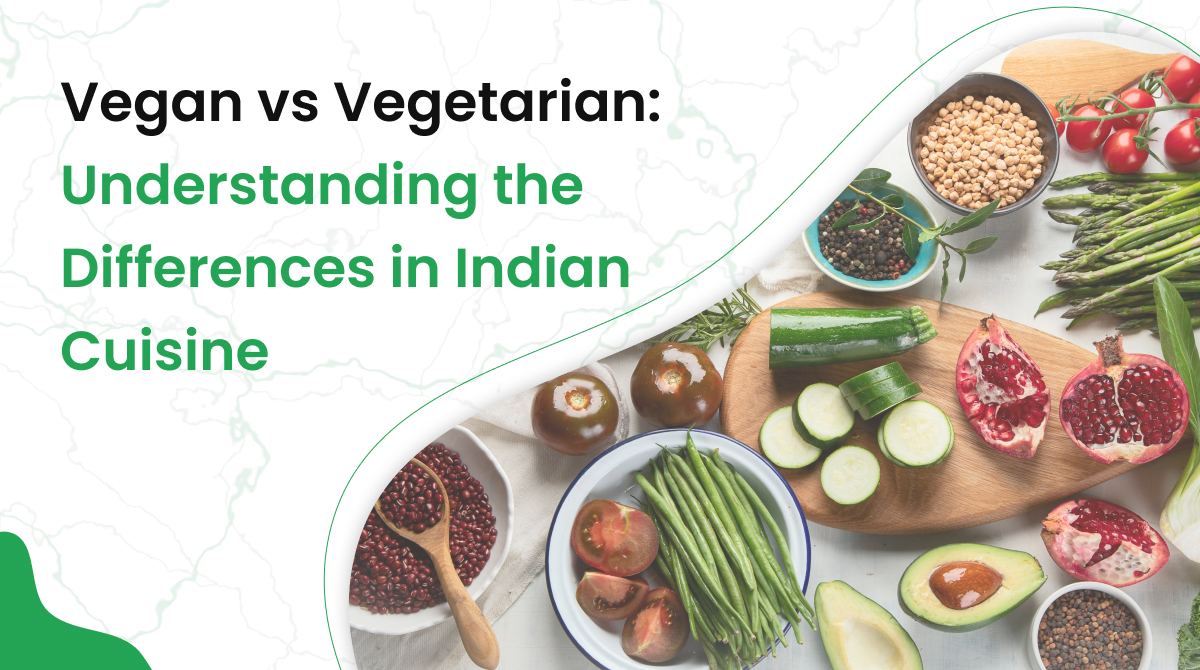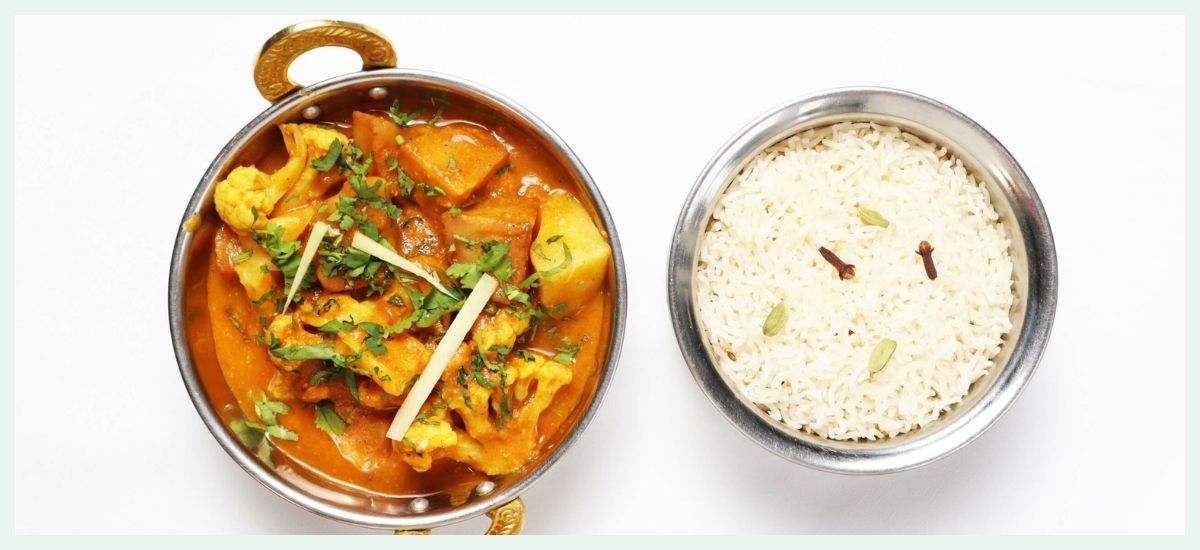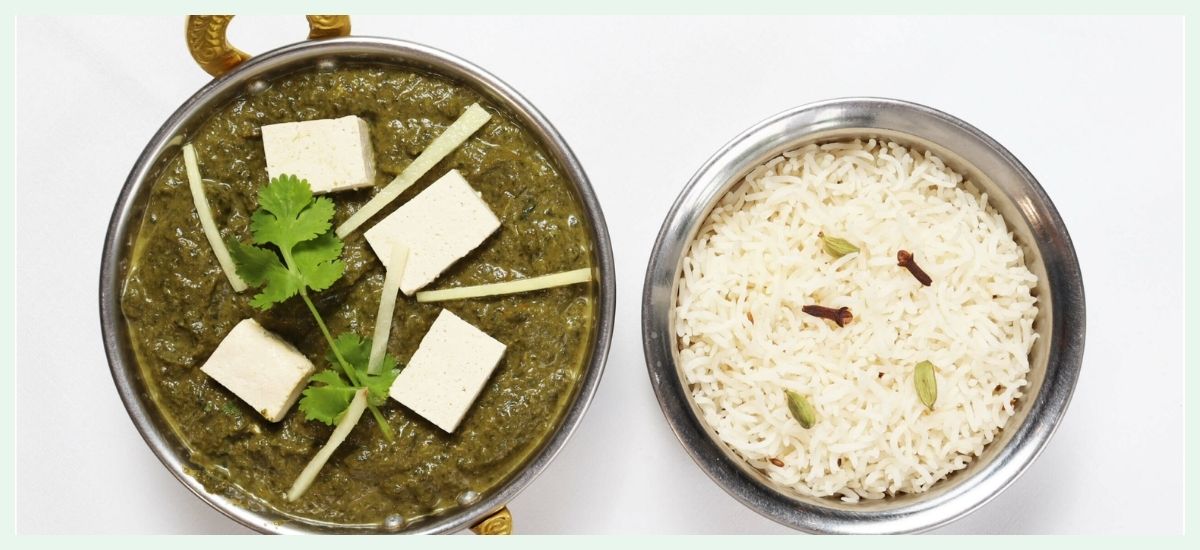In recent years, the culinary landscape has seen a significant rise in the popularity of plant-based diets, particularly veganism and vegetarianism. While both diets emphasize the consumption of plant-based foods, they differ in their restrictions and philosophies. This distinction is especially relevant in the context of Indian cuisine, which is renowned for its rich variety of vegetarian dishes. In this blog, we will explore the differences between vegan and vegetarian diets, their implications in Indian cooking, and how both can be enjoyed at our restaurant, HairMoksh, in Berlin.

Defining Veganism and Vegetarianism
Veganism is a lifestyle choice that involves abstaining from all animal products, including meat, dairy, eggs, and even honey. Vegans adopt this diet for various reasons, including ethical concerns about animal welfare, environmental sustainability, and health benefits. The philosophy behind veganism extends beyond diet; it encompasses a broader commitment to avoiding the exploitation of animals in all aspects of life.
On the other hand, vegetarianism is primarily focused on abstaining from meat, poultry, and seafood. Vegetarians may still consume animal by-products such as dairy and eggs, depending on their specific dietary choices. This diet is often adopted for health reasons, ethical considerations, or cultural practices. In India, vegetarianism is deeply rooted in religious and cultural traditions, making it a prevalent choice among many communities.
The Role of Indian Cuisine
Indian cuisine is a treasure trove of vegetarian dishes, reflecting the country’s diverse cultures and traditions. With a plethora of spices, herbs, and fresh ingredients, Indian cooking offers an array of flavors that can satisfy both vegetarians and vegans. Traditional vegetarian dishes like paneer tikka, chana masala, and aloo gobi are staples in Indian households and restaurants alike.

For vegans, Indian cuisine also provides a wealth of options. Dishes such as baingan bharta (smoky mashed eggplant), vegetable biryani, and various lentil preparations can be made without any animal products. The use of coconut milk, plant-based yogurts, and a variety of legumes ensures that vegans can enjoy hearty and flavorful meals without compromising their dietary choices.
Key Differences in Ingredients
One of the most significant differences between vegan and vegetarian diets lies in the ingredients used. Vegetarians can enjoy dairy products like cheese, yogurt, and ghee, which are commonly found in Indian cuisine. These ingredients add richness and depth to many traditional dishes. For instance, dishes like palak paneer (spinach with cottage cheese) and kheer (rice pudding made with milk) are beloved vegetarian options.
Conversely, vegans must seek alternatives to these dairy products. Fortunately, the Indian culinary tradition is adaptable, allowing for the use of plant-based substitutes. For example, tofu or cashew cream can replace paneer, while coconut milk can serve as a dairy-free alternative in desserts. This flexibility enables chefs to create delicious vegan versions of classic Indian dishes, ensuring that everyone can enjoy the flavors of India.

Health Benefits of Plant-Based Diets
Both vegan and vegetarian diets offer numerous health benefits. Research has shown that plant-based diets can lower the risk of chronic diseases, improve heart health, and promote overall well-being. Indian vegetarian cuisine, rich in legumes, vegetables, and whole grains, provides essential nutrients and fiber that contribute to a balanced diet.
Vegans, in particular, may benefit from increased consumption of fruits, vegetables, and whole foods, which can lead to improved digestion and weight management. However, it is essential for vegans to ensure they are getting adequate protein, vitamins, and minerals, particularly B12, iron, and omega-3 fatty acids, which are typically found in animal products.

The Experience at HairMoksh
At Hari Moksh, our Indian vegetarian restaurant in Berlin, we celebrate the diversity of Indian cuisine by offering a menu that caters to both vegan and vegetarian preferences. Our chefs are passionate about creating dishes that highlight the vibrant flavors of India while accommodating various dietary needs.
Whether you are a vegan looking for a hearty meal or a vegetarian craving traditional favorites, our menu has something for everyone. From our rich and creamy vegan curries to our delectable vegetarian biryanis, each dish is crafted with care and attention to detail. We source high-quality ingredients to ensure that every bite is a delightful experience, reflecting the authenticity of Indian cooking.
Our restaurant is not just a place to eat; it is a space where food lovers can come together to enjoy the rich tapestry of Indian flavors. We believe that everyone should have the opportunity to savor the delights of Indian cuisine, regardless of their dietary choices.
Conclusion
In summary, understanding the differences between vegan and vegetarian diets is essential, especially in the context of Indian cuisine. Both diets offer a wealth of delicious options that celebrate the flavors and traditions of India. At HairMoksh, we are committed to providing an inclusive dining experience that caters to both vegans and vegetarians. We invite you to join us and explore the vibrant world of Indian vegetarian cuisine, where every dish tells a story and every meal is a celebration of flavor. Come and experience the best of both worlds at our restaurant in Berlin!
At Hari Moksh, we are dedicated to offering an authentic Indian dining experience that caters to both vegan and vegetarian preferences. Our menu showcases the rich diversity of Indian cuisine, ensuring that every guest finds something delightful to savor. We invite you to explore our offerings and join our community online.
Follow us on Instagram: @harimoksh.restaurant
Discover more culinary delights on Foodmato.

